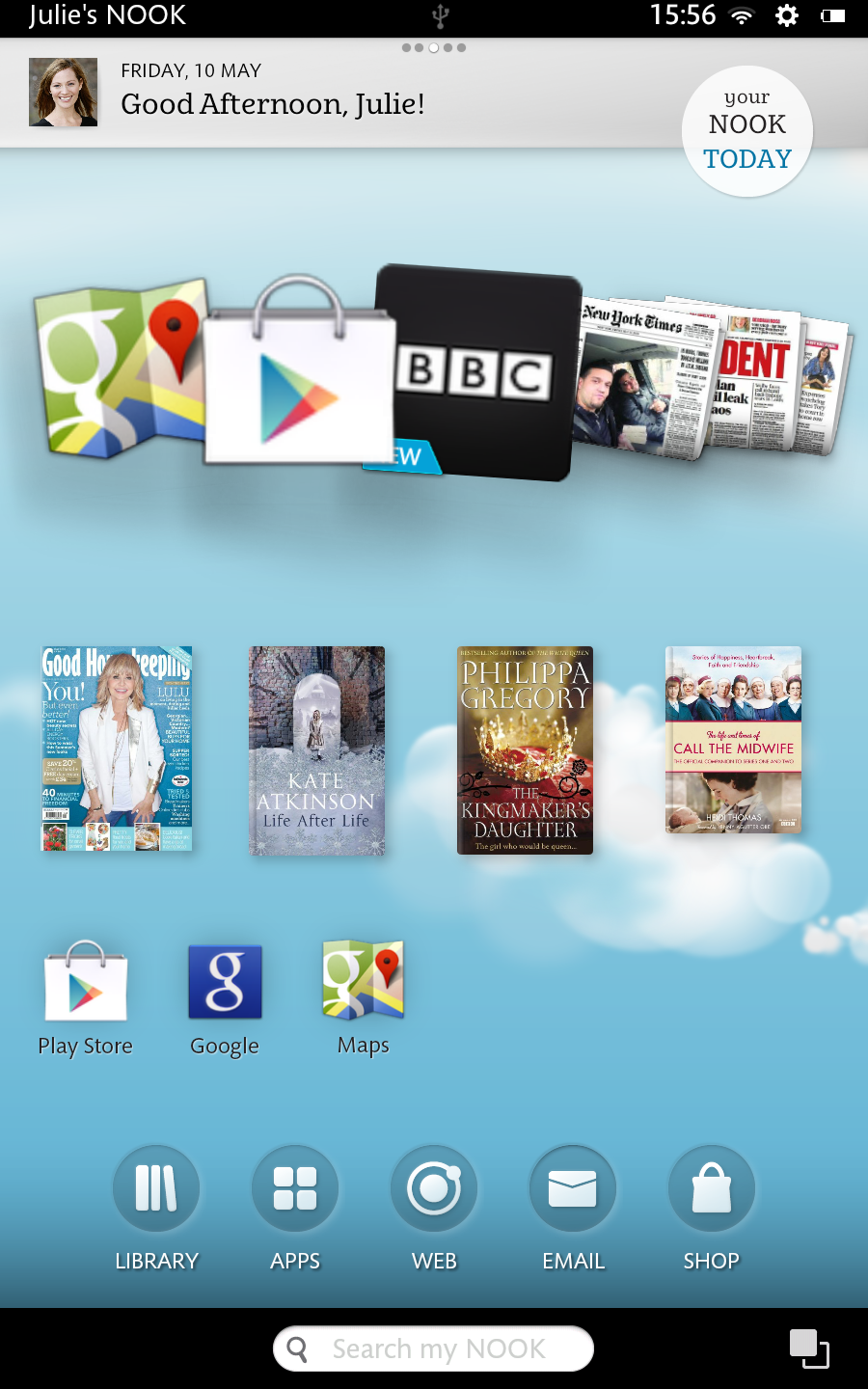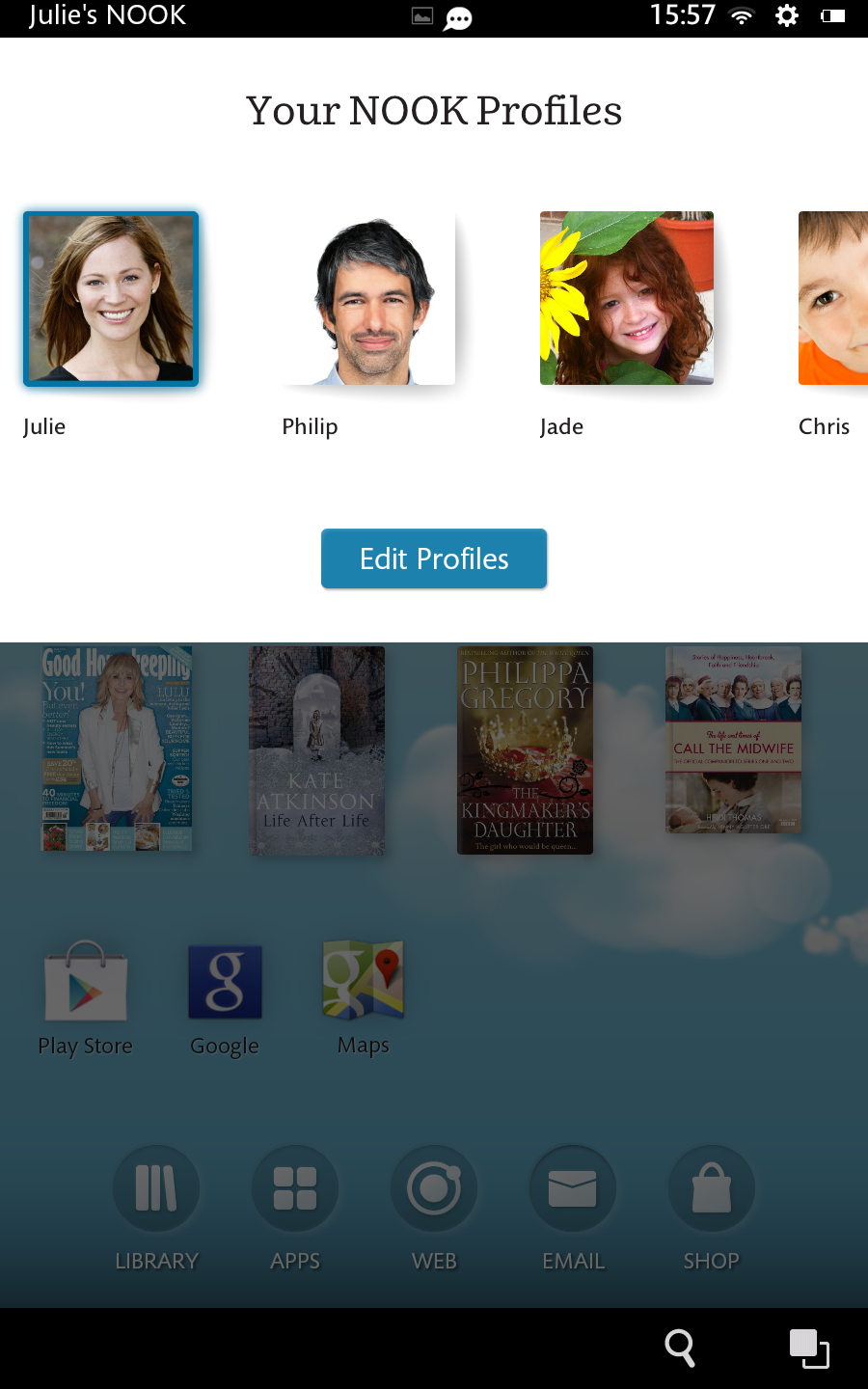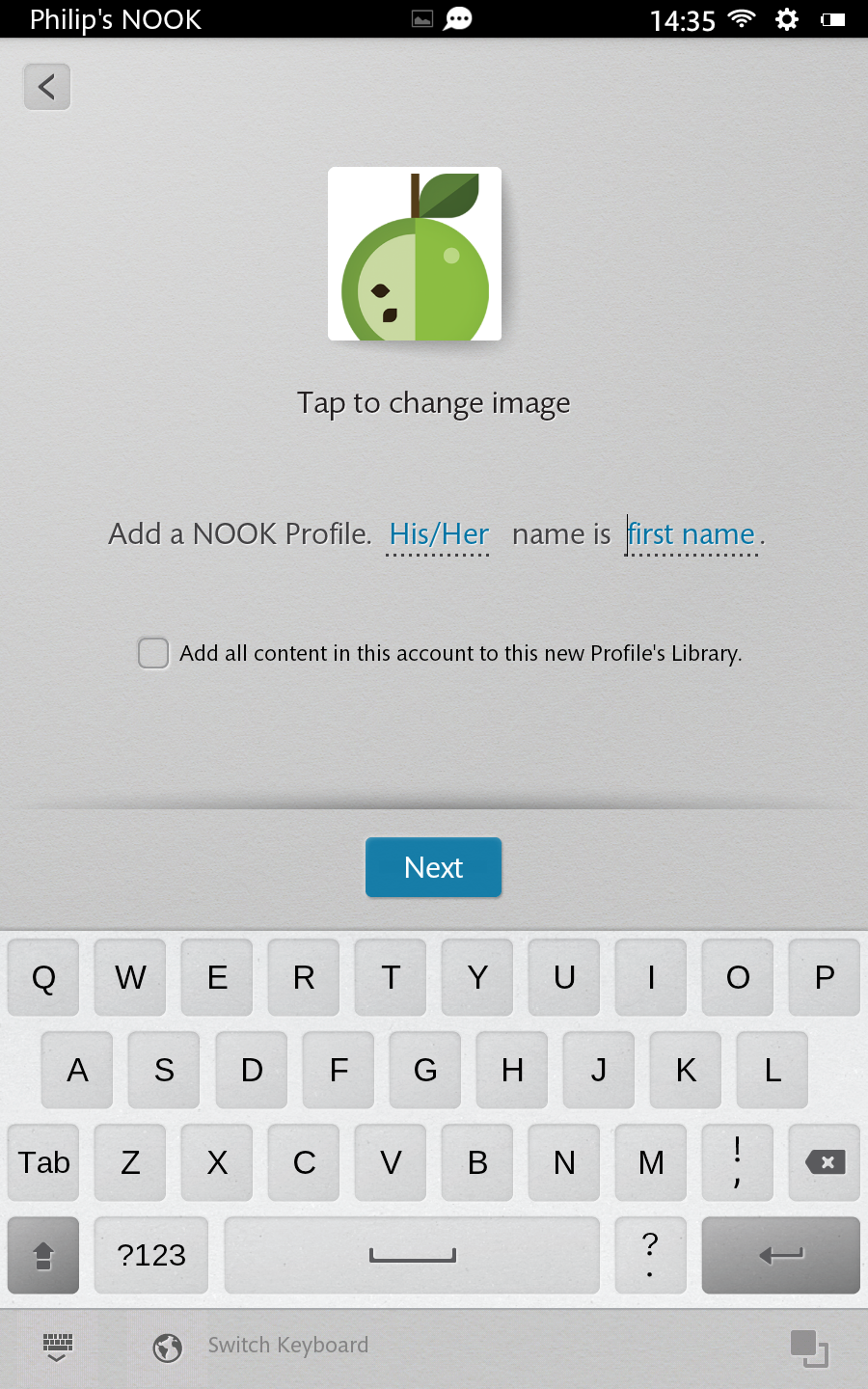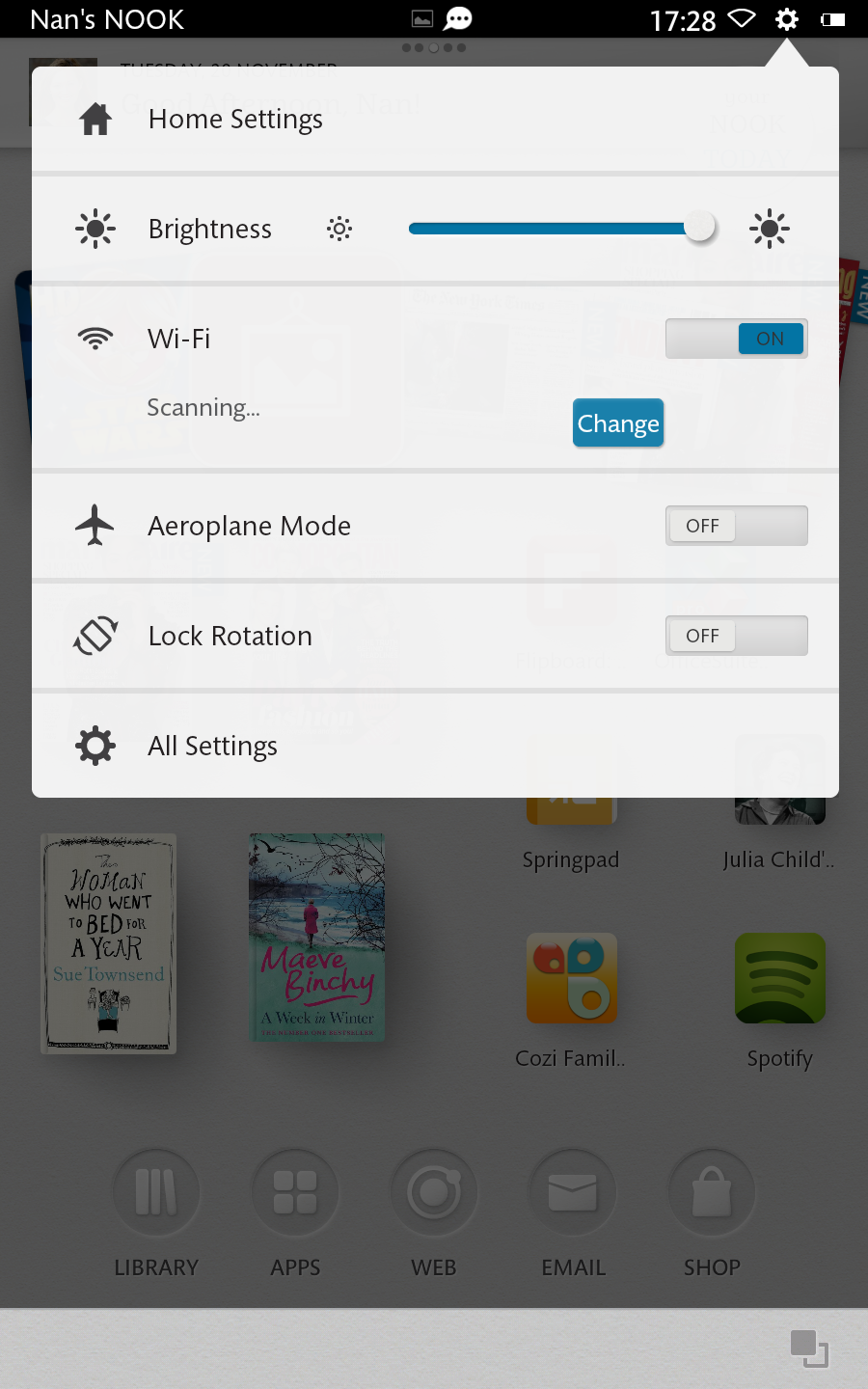Why you can trust TechRadar
At its core the Nook HD is running Android 4.0 Ice Cream Sandwich, but you'd be hard pushed to see any sign of Google's operating system here.
Similar to what Amazon has done with its Kindle Fire and Kindle Fire HD interface, Barnes and Noble has rebuilt its Nook OS from the ground up, giving a completely different feel to the Nook HD than other Android tablets.

This also means that the Nook HD won't follow the Android upgrade lifecycle, so don't expect a Jelly Bean, or Key Lime Pie in the future, update to land on the tablet anytime soon.
Instead Barnes and Noble will constantly assess the Nook ecosystem and supply software updates as and when it sees fit.
Running the show is a 1.3GHz dual-core processor and 1GB RAM, which isn't quite the quad-core chip found inside the Nexus 7, but slightly beefier than the Kindle Fire HD and iPad mini.
Although the power seems to be there, the Nook HD doesn't seem to make particularly good use of it, with the whole system feeling slow and unresponsive.
We wouldn't go as far as to say it was lagging, but that second or so wait for the screen to wake after the power/lock is pressed was a little frustrating.
Sign up for breaking news, reviews, opinion, top tech deals, and more.
A nice feature on the Nook HD is the ability to set up various profiles, with the choice of adult and child options – perfect for adding all the family on one device.

This allows you to filter content across accounts, with kids only seeing child friendly apps, books and movies, while adults can divulge in 50 Shades pleasure without fear of little Timmy asking awkward questions.
Adult accounts can be password protected, ensuring prying eyes can't creep in, and the lock screen displays all the users set up on the Nook HD – allowing you to easily select your area.
Once into your area you're greeted by a homescreen, with five in total. The main attraction is an animated carousel which shows your most recently used items.
Press and hold on a blank space and you'll pop up a menu window, allowing you to populate the panels with apps, books, magainzes and movies, pin bookmarks and change the wallpaper – giving you a personalised interface.
The drag and drop system is intuitive, as is the simple navigation bar towards the bottom of the screen, providing five options; library, apps, web, email and shop.

This additional level or personalisation is nice, as it offers a better set up than the in-your-face content of the Kindle Fire HD, and for first time users it's a lot less complex than the pure Android experience on the Nexus 7.
Below the menu options is the search bar, allowing you to quickly find a particular book, app or other piece of content without having to flick through a vast library or collection, while in the right corner is Nook's answer to multi-tasking.
It shows your recent activity, allowing you to hop between apps without having to return to the homescreen via the physical Nook button - flick up over an app in this menu and it will be removed from the list.
The Nook manages to switch between apps relatively quickly, but it does come a little unstuck if you want to switch users.

Return to the homescreen and press your image icon and a panel will slide down showing you everyone who is set up on the tablet, as well as giving you the option to add more if you haven't filled the quota of six accounts.
Tap another person's profile and the Nook HD takes a couple of seconds to load their personalised homepage, sometimes longer if both profiles are heavily populated.
It's easy to forget that the Nook HD has Android at its core, albeit very well hidden, but it does mean there's a notification bar of sorts – instead of the traditional pull-down motion we're used to, you'll need to tap the centre of the bar at the top of the display.
You can then easily remove alerts one by one by swiping across them, or hit the clear all button to completely flush out the panel.
Prod the sticker icon which says "Your Nook today" on the homescreen and you're taken to a pane which shows the weather in your current location, along with recommendations for various content based on your recent activity.
It's in short, a very basic Google Now feature, which is handy to check the weather, but we didn't find ourselves returning particularly often.
Apart from rearranging your homescreens and moving around the limited menu items, there's not a lot more to do on the Nook HD which will frustrate power users who are familiar with the openness of the Android operating system.
We are disappointed at the lack of zip the Nook has, even with the basic day to day tasks of unlocking and navigating around – it was noticeably slower when compared to the lightning-quick Nexus 7 and iPad mini.

TechRadar's former Global Managing Editor, John has been a technology journalist for more than a decade, and over the years has built up a vast knowledge of the tech industry. He’s interviewed CEOs from some of the world’s biggest tech firms, visited their HQs, and appeared on live TV and radio, including Sky News, BBC News, BBC World News, Al Jazeera, LBC, and BBC Radio 4.
